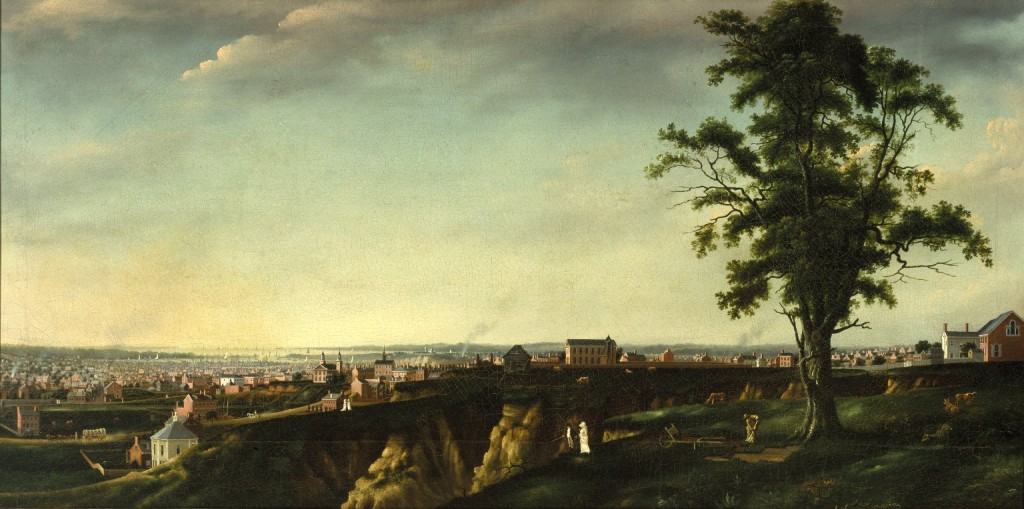On July 4, 1814, the American and Commercial Daily Advertiser continued its’ “annual custom” publishing the Declaration of Independence in full:

For newspaper editor William Pechin, reading Thomas Jefferson’s words held special meaning in the summer of 1814:
We have this day, according to annual custom, inserted the Declaration of American Independence.—Never since the 4th day of July 1776, has its publication become more necessary, for never since the Revolutionary war has our Independence been in greater danger from the same ambitious and powerful enemy.—Let every American read it with solemn attention, and firmly resolve, with an honest ear, and a resolute hand, to support the liberties of the Republic.
The threat of the British attacks on towns and small farms around the Chesapeake still did not prevent Baltimore from celebrating the occasion. After the holiday passed, the American Commercial and Daily Advertiser summarized the events of the day in their next issue on July 6:
“Monday last, being the annual recurrence of that memorable transaction which took place on the 4th day of July 1776, and which, we trust, for ever separated the Western from the trammels of the Eastern hemisphere, the same was observed in this city by the various Military Corps and Associations—In the morning, they parade in Market-street, from whence they marched to Pratt-street Avenue, and fired three rounds in the honor of the day—After which they returned to Market-street, when the corps proceeded to their separate parades, and dismissed, each man to his place of abode, where, we hope, they will see many happy returns of the day, and long enjoy peace and independence, the invaluable inheritance of FREEMEN, both individually and nationally.”
Others gathered for private parties, including at Rutter’s Spring where William Pechin, writing on July 7, praised their restraint:
“A small part convened at this delightful spot to celebrate the Anniversary of Independence. Fully sensible, that the memory of Freedom is too often abused by inebriated riot, this little band of patriots mingled their bowl with temperance and discretion, and after dining and drinking the following toasts, went to their respective homes with gladdened hearts and steady heads.”
The group still shared a twenty-six toasts including a toast to the City of Baltimore calling it “The scourge of traitors, the heart of oak, too tough to be split by the influence which flows through the ‘Common Sewer’.”
Happy 4th of July!
